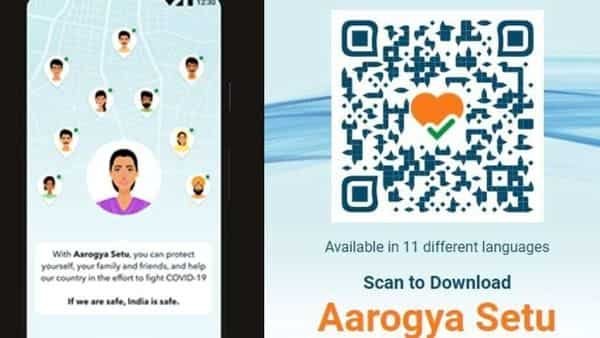John Daniels, General Secretary of the District Congress Committee, Thrissur moved a petition in the Kerala High Court challenging the move to make the installation and use of the Central Government’s Aarogya Setu COVID-19 tracker mobile application mandatory, citing privacy and data security concerns through Advocates Sriram Parakkat, KR Sripathi and Anupama Subramanian.
It highlighted that the use of the Aargoya Setu app was made mandatory by way of two Government notifications, i.e.
- On April 29, an office memorandum was issued by the Union Ministry of Personnel, Public Grievances and Pensions Department of Personnel & Training, whereby the use of Arogya Setu was made mandatory for all Central Government Employees.
- Clause 15 of the National Directives given to the State Governments earlier this month, while extending the COVID-19 lockdown to its third phase, stated that the “Use of Arogya Setu app shall be made mandatory for all employees, both private and public. It shall be the responsibility of the Head of the respective Organisations to ensure 100% of this app among all employees.”
The petitioner further submitted that even while the Government promoted the use of the app during the pandemic, there were still people who “made their informed opinion and decided not to download the application, thereby resisting to put into stake their personal information.”
It was contended that such mandatory imposition of the Aarogya Setu app would effectively dilute the principles of personal autonomy, as recognised in Supreme Court cases such as KS Puttaswamy v. Union of India and Anuj Garg v. Hotel Assn. of India. The petitioner elaborated further that,
“… mandating the use of the application, Arogya Setu takes away the right of a person to decide and control the use of information pertaining to him. He is forced to give away data to a system which he may or may not approve of, thereby attacking his right of informational autonomy. Autonomy guaranteed by the Constitution of India also grants an individual freedom not to take part in activities he does not approve of.”
The petitioner contended that it is one of informed consent, which assumed significance given that the information stored by the app is personal and sensitive in nature.
The petitioner stated that if a citizen disapproved the collection of his personal information in this manner, “it could be said that the information was forcibly and coercively taken from him without his consent and by inflicting fear of penal consequences.”
The petitioner argued that even if a person has agreed to install the app, it would not amount to full consent unless the Government discloses who all would have access to the information and for what purposes in may be used.
“… consent must be specific, rather than infinite or open ended. Unless information relates to a specific action, the party from whom it is being obtained cannot know what it is that one is consenting to. In this particular case, the user of the application is unaware as to why his personal data is collected and for what purpose it will be used for and by whom it will be used for”.
“Such coercive and forcible extraction of personal information from an individual is unheard of in a democratic and republic setup and it is attribute of a dictatorial system.”
The petition stated that the exchange of information between devices adds to the vulnerabilities of the app and the possible points of attack for malicious actor and about not clarity as to which Government Department would be accessing the data, which will lead to concerns of possible State overreach.
The petitioner raised concern over the absence of healthcare officials on the committees concerning the Aarogya Setu app. He adds that this prompts suspicions about the actual usage and application of the same.
“It raises concerns of a surveillance system being set up. The Committee is reportedly mulling recommendations to expand the Government’s powers in using technological tools – like the Aarogya Setu application. In fact it has reportedly already made a specific recommendation to extend and expand the scope of the application post the lockdown.”
The petitioner also contended that the automatic exclusion of non-smartphone users from the this compulsion is unfair, unjust and would defeat the purpose of compelling the use of the Aarogya Setu application.The vicarious liability imposed on employers comes to the installation of their app by their employees has also been challenged as arbitrary, given that the employer may not have any mens rea.
“An employer who has only a work relationship with an employee cannot compel the employee to install a mobile application and use it diligently and to provide his personal information to the domain”, the petitioner added.
While also relying on the significance attached to ensuring the confidentiality of sensitive information and obtaining informed consent in order passed by the Kerala High Court recently in the Sprinklr case
The petitioner has prayed for the following:
- That the Court strike down as unconstitutional Clause 15 of the National Directives for COVID-19 management which imposes the use of the Aarogya Setu app;
- That the Court direct that the usage of Arogya Setu is subject to the personal discretion of each citizen;
- That the Government authorities be directed to refrain from taking any penal action or other stringent measures to impose the mandatory usage of the Arogya Setu app.

